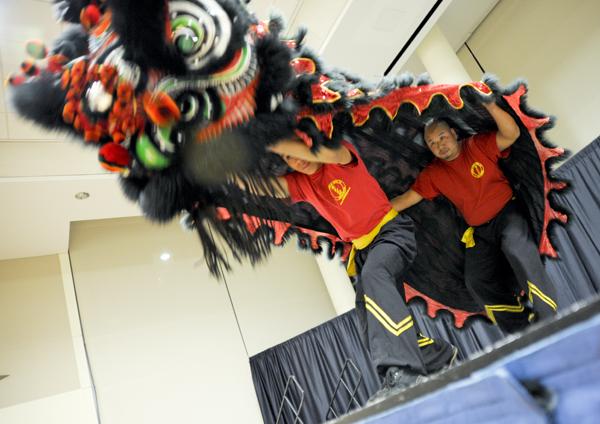The Center for Student Engagement is tightening its grip on GW’s 454 campus organizations this fall to reduce the number of duplicate or inactive groups on campus.
Student organizations will be asked to disband this year if they do not meet or plan events regularly, Associate Dean of Students Tim Miller said last week.
CSE will also keep a closer watch on new groups this year. For the first time, the office will reject applications from groups that cannot prove they will have a distinct purpose at GW and can last several years.
GW surpassed 400 student groups at the end of 2011, Miller said. The scales could now tip, as this year’s figure is closer to 500. With squeezed campus meeting space, the strain on advisers and groups’ already tight budgets, Miller said he was increasingly alarmed by the rise in organization registrations.
“This campus is not big enough to hold 500 groups. Just capacity-wise, it’s too many groups,” Miller said.
To catch inactive groups, CSE staff will look up every organization that received Student Association funds this winter to see if they spent their allocated money or registered spaces for meetings or events. If group leaders do not respond to CSE emails during that time, the group will no longer exist, Miller said.
Miller said he hopes to prevent drop off in groups, which leads to wasted student fee money. “Our hope is to challenge groups a little bit when they’re forming and say, ‘What are you forming for? Why are you doing this?'” Miller said.
Only registered groups can reserve space or apply for student fee money. About 300 groups apply for a piece of the SA’s roughly $1 million budget each year, and about 90 percent of groups are given funds.
Now, before new groups can request funding, members must create a plan on how to outlast their leaders’ time at GW. And if an aspiring group cannot prove it has a unique purpose, Miller will ask the students to join similar groups that already exist.
Established groups will not be asked to merge, even if they share a mission, Miller said. For example, the handful of Chinese-American groups already on campus can continue to run, but future Chinese-American groups could be turned down.
Corinne Falotico, a junior and executive producer for Forbidden Planet Productions, one of four student theater groups on campus, said those organizations need to keep their separate identities.
“If all four groups were to merge together, less shows would be produced a semester, causing less students to be involved. One student theatre group would not be enough to satisfy the needs of the growing theatrical population on campus,” Falotico said.
Junior Nadia Rakin, the secretary for the Afghan Student Association, said that a “quality over quantity” approach makes sense. But she said an attempt to stem the growth of student organizations would hurt student life.
“I think to stop the number of student orgs on campus from growing would also hinder students’ capacity to grow and make an impact on campus,” Rakin said.
With his eye on efficiency, Miller has tightened the rules for student organizations multiple times in his three years leading the CSE, with the SA following suit.
The SA added stricter rules to its allocations process last year, after an internal audit showed the system needed more oversight. For the first time this spring, groups will be required to explain each event and expense to the SA to get funding as more groups compete for the same pot of money from student fees. Last spring, the SA also required groups to submit budgets before the school year begins.
Budget pressure also forced the SA to raise the student fee last year, which will bring the student organization pool up to $1.75 million within a decade.
Ryan Counihan, who leads the SA finance committee, said he had not heard of CSE’s changes. But he said CSE should not be concerned with an increase in student organizations because senators already planned for those increases in the SA budget.
During past allocation processes, Counihan said the committee has not determined funding based on an organization’s mission, but on several factors.
“Our policy has always been that it’s not our place to not fund an organization because they overlap – who are we to say which one is better?” Counihan said. “I think it’s a good thing that student organizations continue to expand. It adds to student life.”
Miller added that he believes student organizations are “one of the most important ways that students find their place at GW is through student organizations.”
“Every university has a challenge of limited space, advisors, and resources that can’t be met by an uncontrolled growth in the number of orgs. Despite these challenges, we will always support the needs and interests of our students to create community at GW,” he said.
This post was updated Sept. 30 at 11:55 a.m. to include additional information and to reflect the following correction.
The Hatchet incorrectly reported that new student organizations must submit plans to stay active for at least four years. That planning is encouraged, but not required. We regret this error.








